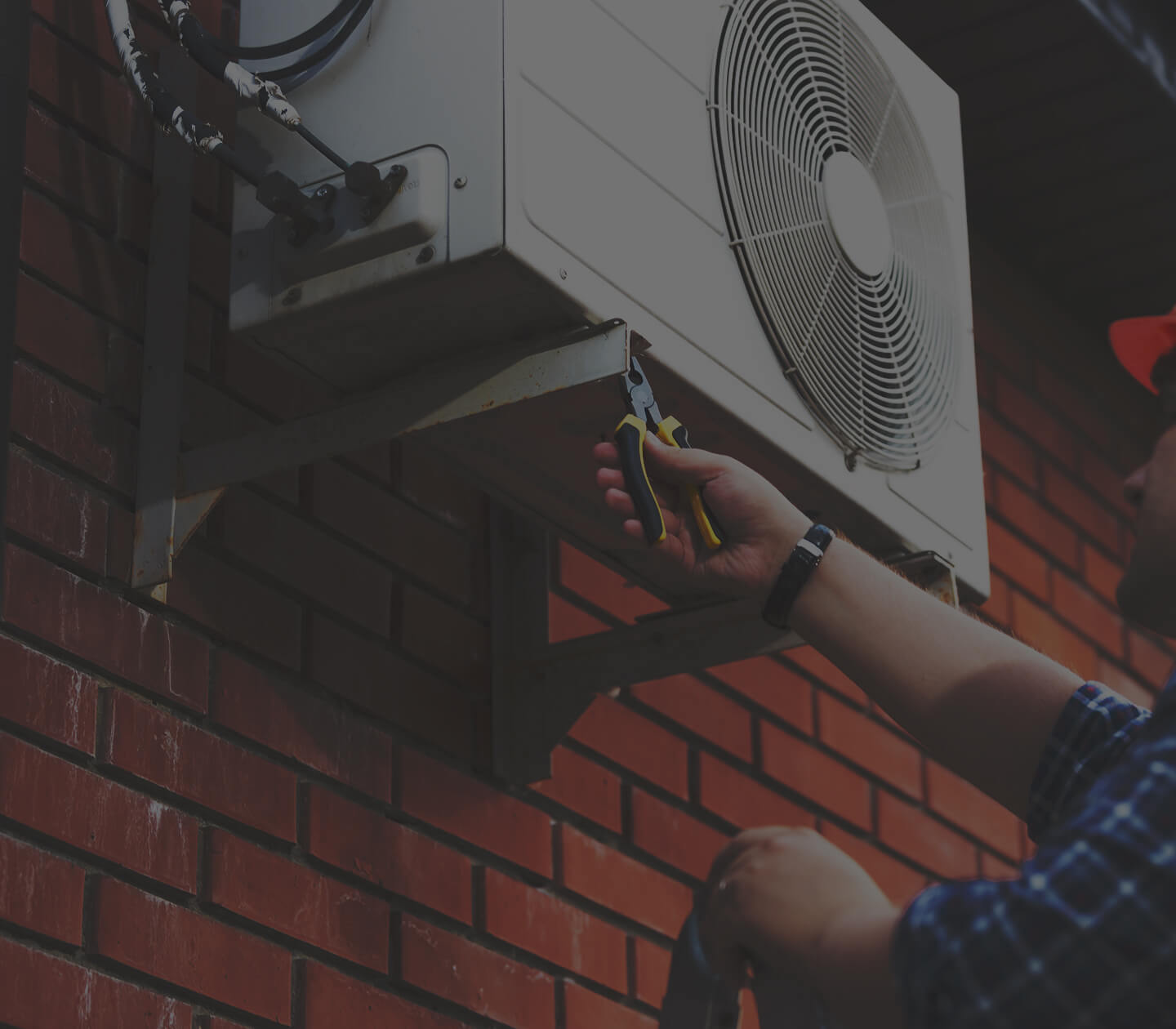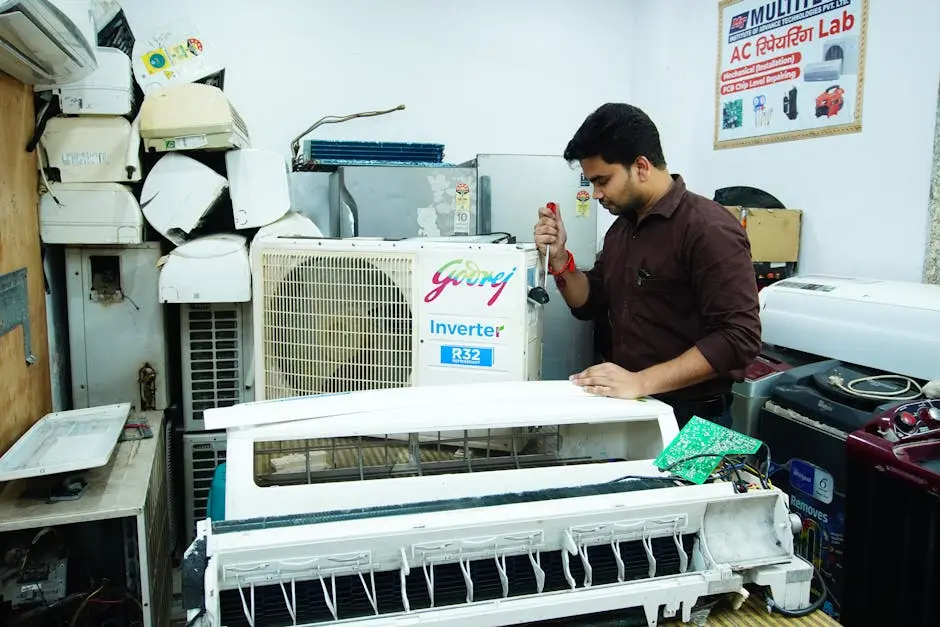Air conditioning units are essential for keeping our homes cool and comfortable, especially during the scorching summer months. However, when problems arise, many homeowners inadvertently make mistakes that can lead to further damage and costly repairs. In this article, we’ll explore some common missteps to avoid in your AC repair journey.
1. Ignoring Regular Maintenance
Skipping regular maintenance can lead to escalating issues. Routine checks are crucial for keeping your AC unit in top shape. For instance, checking the coolant levels or ensuring that the coils are clean can make a significant difference in performance. Unfortunately, many homeowners believe that once their unit is installed, it requires no further attention.
In reality, though, neglecting regular services can result in inefficient cooling and even complete breakdowns. Scheduling annual check-ups with a professional can save both time and money in the long run. It’s a small investment compared to the costs of unexpected repairs!
2. Neglecting to Change Air Filters
Dirty air filters can restrict airflow, causing your AC to work harder than necessary. Remember to change them regularly. This simple action not only extends the life of your AC unit but also significantly improves air quality in your home, leading to a healthier living environment.
Many people may not understand just how vital air filters are; clogged filters make your system less efficient, increasing energy bills. The general recommendation is to check your filters monthly and change them at least every three months.
3. Failing to Diagnose the Issue Correctly
Jumping to conclusions about a problem can lead to unnecessary repairs. Take your time to diagnose and understand the real issue. A common mistake is assuming that a strange noise means the compressor needs replacement, while it could simply be an unsecured screw.
Investing a bit of time in proper diagnostics can save you from spending on fixes that don’t solve the actual problem. Using basic troubleshooting tips can give you a clearer idea of what’s wrong before calling a technician.
4. Using Incorrect Tools
Using the wrong tools for AC repairs can cause damage. Always ensure you have the correct equipment to avoid mishaps. While you might think that a hammer can fix something like a loose panel, it’s often just a recipe for disaster.
Investing in quality tools can help prevent unnecessary damage and can lead to more effective repairs. Sometimes, borrowing or renting tools specifically designed for AC repairs can make all the difference.
5. Ignoring Safety Precautions
Many homeowners overlook safety measures. Always turn off the power and take precautions to protect yourself during repairs. Failing to do so can lead to electrical shocks or other accidents, which can be dangerous and potentially life-threatening.
Even if a repair appears simple, always keep safety as your top priority. Remembering to wear protective gear like gloves and goggles can mitigate the risk of injury and ensure that you carry out the repair safely.
6. Underestimating DIY Challenges
While DIY repairs can save money, underestimate the complexity at your own risk. Some issues are best left to the professionals. Many homeowners often think they can handle repairs that require technical knowledge or specialized skills, only to find themselves in over their heads.
If you’re not confident about a specific task, it’s perfectly acceptable to call in a professional. Not only can this save time and hassle, but it can also ensure the repair is done correctly the first time. Ultimately, peace of mind can be worth the extra cost.
7. Overlooking Signs of a Bigger Problem
Ignoring strange noises or foul smells can lead to more significant challenges. Pay attention to your unit’s signals. If your air conditioner is emitting a strange odor or making peculiar sounds, it’s your system’s way of telling you that something isn’t right.
Addressing these warning signs immediately can prevent small issues from escalating into major repairs. So, what should you do? Keep a keen ear and nose out for any changes and don’t hesitate to call for help when needed.
8. Overcharging the System
Adding too much refrigerant can cause more harm than good. Be careful with how much you charge your system. While it might seem harmless to pour in extra refrigerant to boost cooling, this practice can lead to system inefficiency and potential compressor failure.
If you’re unsure about how much refrigerant your AC system requires, consulting the manufacturer’s guidelines or seeking a professional’s advice is the best course of action. After all, prevention is better than costly repairs later!
9. Forgetting to Seal Ducts Properly
Improperly sealed ducts can lead to energy loss and inefficiency. Always ensure your ducts are sealed securely. Duct leaks can divert air away from intended areas, necessitating your unit to work much harder—and often leading to higher energy bills.
Taking the time to inspect your ductwork and addressing any leaks can dramatically improve your system’s efficiency. It’s a relatively straightforward fix that pays off in the long run!
10. Relying on Quick Fixes
Quick fixes may provide temporary relief but usually lead to bigger problems. Aim for sustainable solutions instead. It’s tempting to patch things up when a problem arises, but this often leads to recurring issues that compound over time.
Investing in long-term solutions rather than temporary fixes ensures your comfort and saves you money. Regular comprehensive check-ups can help catch problems before they require expensive repairs.
11. Neglecting Local Regulations
Every area has specific regulations regarding AC repair. Ensure you’re compliant to avoid fines or complications. Understanding local laws can be just as important as knowing how to fix your AC.
Consulting local codes before starting repairs or renovations can save you headaches down the line. Don’t miss out on valuable information that can help make your repair process smoother.
12. Not Keeping Documentation
Failing to keep repair records can complicate future problems. Always document your repairs for reference. Having a record not only helps in diagnosing future issues but also assists professionals if you need to call in for help.
Keeping valve records, service receipts, or any modifications made can lead to informed decision-making in the future. It’s worth the effort, especially when quick recall of information can lead to efficient troubleshooting.



